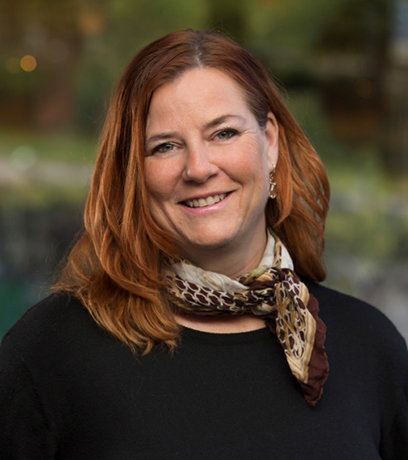Changing the image of sobriety


Two pictures, same person. Whom do you see? Do you see a self-confident redhead woman in her fifties, with a French vintage scarf around her neck and a kind smile? Then, you are looking at the first female chairperson of the Swedish sobriety movement IOGT-NTO (yes, you need to be sober to pronounce that seven letters abbreviation quickly).
A life free from alcohol can be about freedom, compassion and solidarity rather than about morality and restrictions.”
Anna Carlstedt, PhD
She also holds a PhD at Stockholm University where she is today a Faculty Program Director. She is the former president of the Swedish Red Cross AND – ouf! – the Swedish Government’s former National Coordinator of safeguarding democracy from violent extremism. With so many others, she may have contributed to changing the image of personal temperance/sobriety/alcohol free lifestyle. The last 35 years, she has tried to show that a life free from alcohol can be about freedom, compassion and solidarity rather than about morality and restrictions. This unbearably self-controlled and self-righteous woman is me. I am so proud that I was the organization’s first female chairperson.
Living through the harm from alcohol – and the alcohol norm
But I was possibly also one of the first presidents to have such close experience of alcohol dependence in the family. The girl in the other picture presents – no big surprise, I guess – me as well, 14 years old. Also smiling for the camera, but inside, I was very troubled at the time. I literally tried to carry my whole family on my skinny shoulders, and no one knew. The cat was by best friend.
The alcohol norm was rock solid. I was constantly bullied throughout high school because I did not consume alcohol.”
Anna Carlstedt, PhD
When my commitment began in the mid 80’s, it was taboo to talk about addiction, the small town where I grew up being no exception. We were SO many families who perished due to addiction, but no one talked about it and we got NO help. The alcohol norm was rock solid. I was constantly bullied throughout high school because I did not consume alcohol. But I continued to go there, I put on my t-shirts that said SOBER and I met the eyes of those who spat me in the face and shouted at me in the corridors.
Finding ways to change the world
To me, having a mother who was drinking herself to death, and having several families close by shattered by addiction and abuse, consuming alcohol just didn’t make any sense. The fact that I found a commitment to a social movement for sobriety – it could just as easily have been another organization – was absolutely life saving for me. There, I developed self-esteem, got my extended family and an unshakable feeling that the world can be changed: A sense of empowerment I still have with me, no matter the ups and downs in life. And I am very proud of and impressed by what worldwide movement Movendi has become.
Sometimes I want to hug that 14-year-old girl who tried to keep everything together at home, and then went to school and parties, refusing to take shit for not wanting to drink…”
Anna Carlstedt, PhD
Nowadays, I still never get any cred for my personal sobriety (and I don’t need it): In Sweden, you get credit if you are a celebrity, you have been in a really deep addiction and you THEN become sober. Sometimes I want to hug (yes, figuratively of course in these pandemic times) that 14-year-old girl who tried to keep everything together at home, and then went to school and parties, refusing to take shit for not wanting to drink moonshine or worse. I SO want to tell her that she did the right thing: With my genes, I do not know if I’d still be alive today if I had started to use alcohol or do other drugs. It’s not certain that I would finally have managed to become sober (and then write a book like everybody else, about how heavenly wonderful it is to suddenly live free from alcohol…).
Overcoming inertia through small actions that build healthier social norms
I’ve got so much to thank the temperance movement for. It still has a lot to learn and a lot left to do – just like you and I. The question today is: Who is our greatest enemy? Would it be the alcohol industry? The pandemic? The dictators or the war lords? Or would our greatest enemy of the world today rather be the indifference, and a sense of giving up? Or a fear to speak up? Who would dare, today, to take on a political mission and participate in the public debate, given all the hatred in social media, and the brutal exposure we have to endure, in several ways?
Let us help each other, and let us help all the brave but worried teenagers of the world, to create a strong feeling that we can still make a difference. And it doesn’t always have to be The Big Things: We can just simply try do a good job wherever we are. We can do some shopping for an elderly neighbor. Or call someone we haven’t heard from. Or do some volunteer work, to an extent that suits us. Or, quite simply, just say NO or YES when needed.
Changing the world takes both politics and party. And when we party, preferably outside, always keeping a distance (imagine a space big enough for a small moose between you and your friend for safety) – let’s be wild and sober.
SKÅL!
